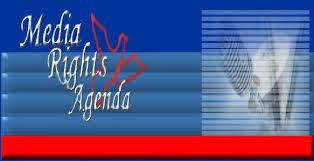Media Rights Agenda (MRA) has condemned as anachronistic and inimical to transparent and accountable governance a statement credited to the Secretary to the Government of the Federation (SGF), Mr. George Akume, in which he threatened that Government officials who disclose information without authorization would be jailed.
Speaking in Abuja on July 2, 2024, at a workshop organised by the Bureau for Public Service Reforms (BPSR) in collaboration with the Office of the Government of the Federation (OSGF), Mr. Akume said the unauthorised leakage of sensitive official documents constitutes a felony, claiming that there is no defence for such, either in the Constitution or Freedom of Information (FOI) Act.
In a statement by its Deputy Executive Director, Mr. Ayode Longe, MRA described as false and illogical the SGF’s accusation in the same speech that civil society organisations (CSOs) “use the Freedom of Information Act to harass, intimidate and siphon resources from public officers through the dissemination of fake and unfounded information”, saying Mr. Akume’s call for the regulation of the activities of civil society organizations on this ground was a red herring designed to divert attention from the Government’s real challenges.
He argued that unless the SGF is saying that when CSOs apply to public institutions for information using the FOI Act, they are given “fake and unfounded information” in response, we do not see how his accusation can be remotely true, adding that we also do not see how requesting information under a valid and subsisting Law passed by the National Assembly for that purpose and assented to by the President can amount to harassment, intimidation or siphoning resources from public officers.
Calling on Mr. Akume to substantiate his allegation that civil society organizations are using the FOI Act to harass, intimidate and siphon resources from public officers, Mr. Longe stressed that the SGF’s apparent aversion to transparency and accountability in government should not lead him to mischaracterize the FOI Act or falsely accuse CSOs that have only exercised the right given to them and every other person by the Act.
He said: “We are disheartened to see on public display such profound ignorance of the FOI Act by a senior official of the Federal Government. We respectfully call on him to make an effort to familiarize himself with the provisions and intent of this piece of legislation in order not to cause further embarrassment to the Government he represents.”
Mr. Longe advised the SGF that he would face an uphill task in attempting to prosecute any government official for unauthorized disclosure of information in the face of Section 27(2) of the FOI Act, which protects whistleblowers and states unequivocally that “Nothing contained in the Criminal Code or Official Secrets Act shall prejudicially affect any public officer who, without authorization, discloses to any person, an information which he reasonably believes to show mismanagement, gross waste of funds, fraud, and abuse of authority; or a substantial and specific danger to public health or safety notwithstanding that such information was not disclosed pursuant to the provision of this Act” and goes on to provide that “No civil or criminal proceeding shall lie against any person receiving the information or further disclosing it.”
He noted that the SGF’s preoccupation with secrecy rather than good governance was neither helpful to citizens nor to the Government itself, saying “Perhaps, if the Government was formulating and implementing policies and actions that are resulting in tangible benefits to citizens, it would not be so concerned about its decisions and actions becoming public knowledge.” He, therefore, advised the SGF to concentrate his efforts on ensuring that the Government does the right thing rather than things the Government itself appears to be ashamed of, such that it would not be afraid of its decisions and plans being revealed to the public.
Arguing that whistleblowers are vital to the integrity and proper functioning of a country’s public institutions, Mr. Longe noted that “The protection of whistleblowers is now a global priority and the SGF would find himself in a face-off not just with Nigerian civil society but also with the international community should he attempt to prosecute any official for disclosing information that reveals corruption, mismanagement of funds, fraud, waste of public resources, abuse of power, or any other wrongdoing.”
He commended those “courageous individuals” in government who have, despite such threats and in the face of great adversity, chosen to speak out against wrongdoing, whether anonymously or publicly, to expose corruption, fraud, abuse of office, and other unethical actions that undermine public trust and confidence in government, describing them as “the unsung heroes of our society.”
According to him, “Whistleblowers are driven by a profound sense of duty and a commitment to the greater good. They shine a light in the dark corners of our governments, revealing truths that many officials would prefer remain hidden. Their actions have often led to significant positive changes, including correcting injustices, the implementation of reforms, and safeguarding the public interest.”
Mr. Longe said rather than threatening whistleblowers with imprisonment in order to create a climate of fear and discourage others from coming forward, the Government should be adopting additional measures and enacting laws to ensure adequate protection for them in the light of the immense value that they bring to the society and the essential role they play in combating corruption as well as maintaining accountability and transparency.

